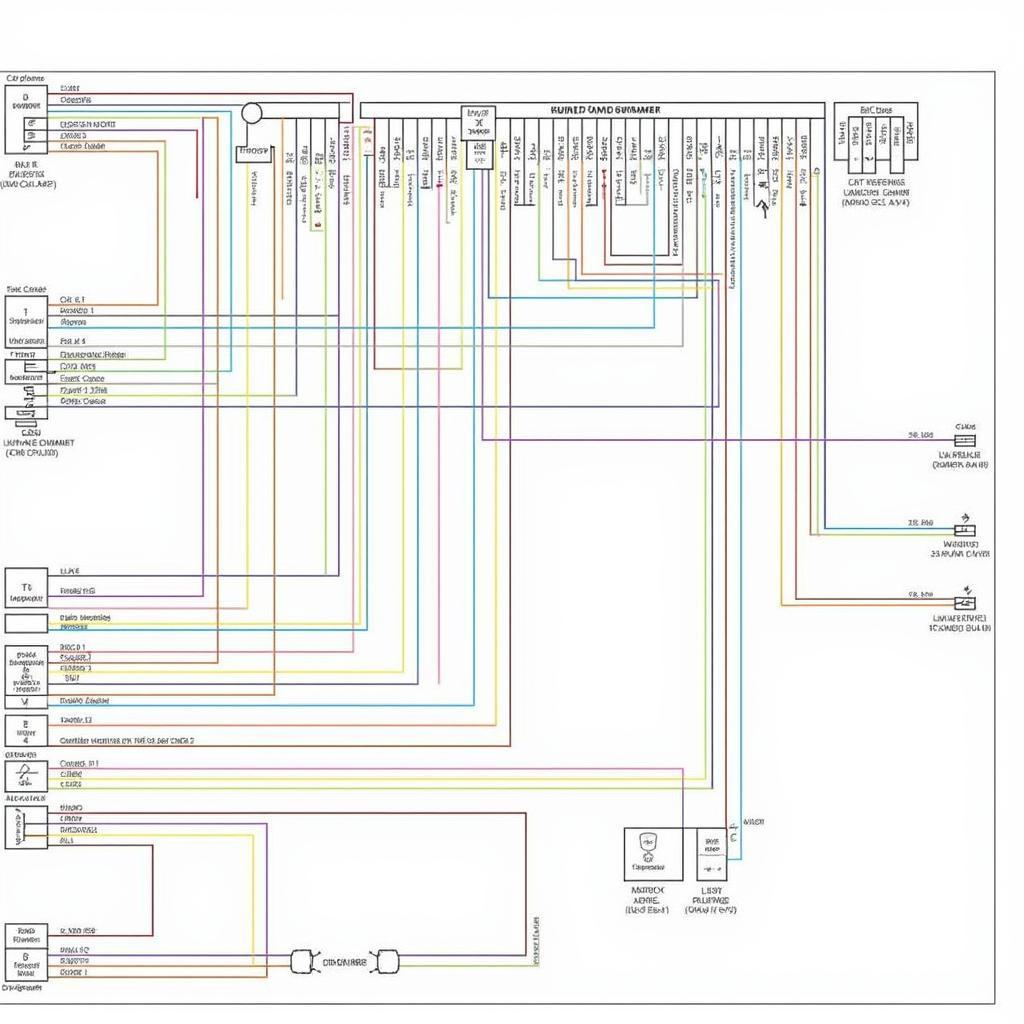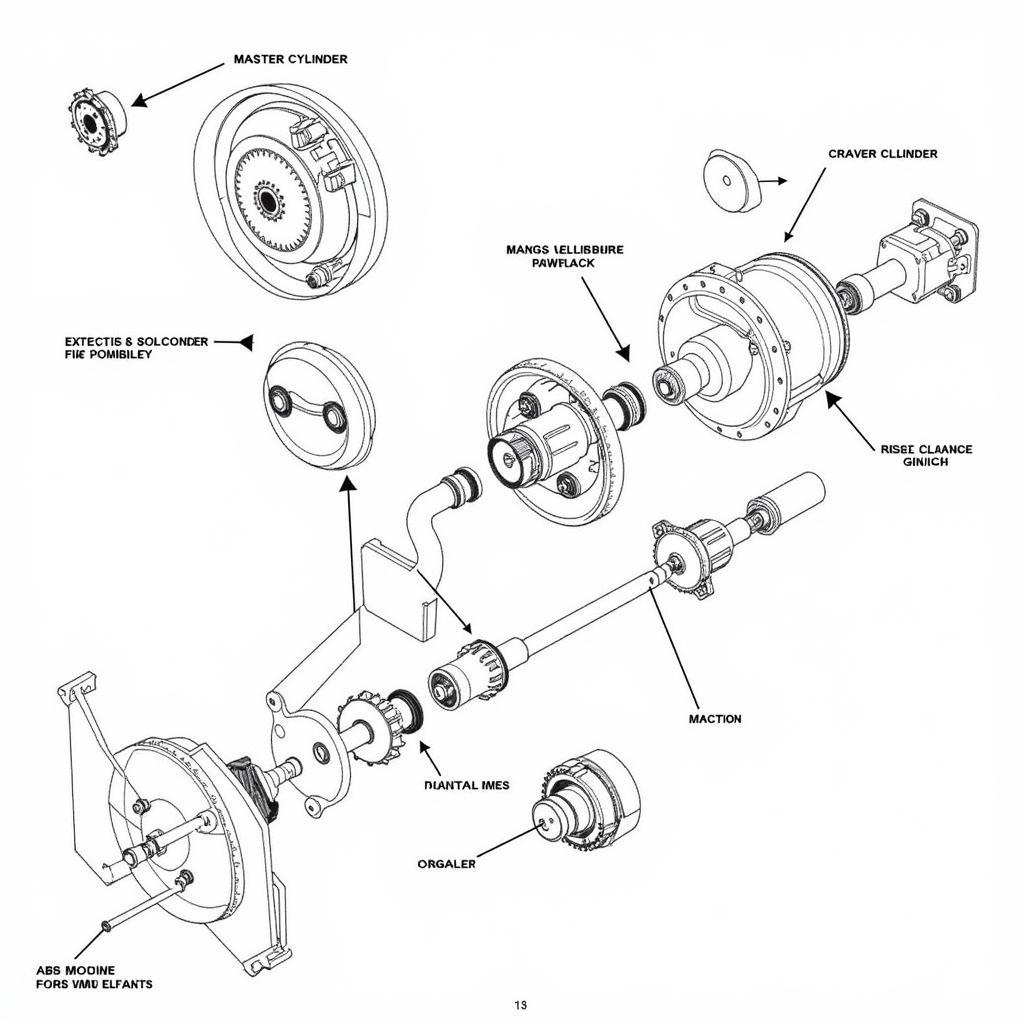The BMW brake warning light, also known as the brake system warning light, is a critical indicator that alerts you to potential issues with your vehicle’s braking system. If you see this light illuminate in your BMW 3-Series, it’s crucial to address the problem promptly to ensure your safety and maintain the integrity of your vehicle.
In this comprehensive guide, we’ll delve into the common reasons behind the BMW brake warning light in the 3-Series, discuss the diagnostic process, and outline the most effective solutions. We’ll also address frequently asked questions to provide you with a comprehensive understanding of this issue.
Common Causes of the BMW Brake Warning Light in the 3-Series
The brake warning light in your BMW 3-Series can illuminate for a multitude of reasons, each demanding different solutions. Here are some of the most common culprits:
1. Low Brake Fluid
One of the most frequent causes is a low brake fluid level. Brake fluid is essential for maintaining pressure within the braking system, enabling effective braking. When the fluid level drops below the minimum mark, the sensor triggers the warning light.
2. Worn Brake Pads or Rotors
Brake pads and rotors are vital components of your vehicle’s braking system. As they wear down due to friction during braking, they need replacement to prevent further damage and maintain braking performance. If the sensors in these components detect excessive wear, the warning light will activate.
3. Faulty Brake Light Switch
The brake light switch is responsible for illuminating your brake lights when you press the pedal. If this switch malfunctions or experiences a short circuit, the warning light might come on.
4. ABS Sensor Issues
The Anti-lock Braking System (ABS) uses sensors to monitor wheel speed and prevent the wheels from locking during braking. If one or more of these sensors malfunction, the warning light may appear.
5. Brake System Leak
A leak in any part of the brake system, including the lines, calipers, or master cylinder, can lead to a loss of brake fluid and trigger the warning light.
Diagnosing the BMW Brake Warning Light
Before you attempt any repairs, it’s essential to diagnose the root cause of the brake warning light. Here’s a step-by-step approach:
-
Check the Brake Fluid Level: Open the hood and locate the brake fluid reservoir. Check if the fluid level is within the “MIN” and “MAX” markings. If it’s low, top it off with the correct brake fluid type for your BMW 3-Series.
-
Inspect Brake Pads and Rotors: Visually inspect the brake pads and rotors for signs of wear or damage. You can use a flashlight to get a clearer view. If the pads are worn down, the metal backing plates will be visible. Worn rotors will exhibit grooves, scoring, or rust.
-
Test the Brake Light Switch: With the ignition on, press the brake pedal. The brake lights should illuminate. If they don’t, the switch might be faulty.
-
Check for Leaks: Examine the brake lines, calipers, and master cylinder for any signs of leaks. Look for wet spots, dripping fluid, or discolored areas.
-
Use a Diagnostic Scanner: A professional automotive scanner can retrieve diagnostic trouble codes (DTCs) from the vehicle’s computer, providing valuable insight into the specific issue causing the warning light.
Solutions for the BMW Brake Warning Light
Once you’ve diagnosed the cause of the warning light, you can implement the appropriate solutions. Here are some common fixes:
1. Refilling Brake Fluid
If the issue is low brake fluid, simply top off the reservoir with the correct type of brake fluid. Remember to consult your owner’s manual or a reputable automotive resource for the recommended fluid type for your BMW 3-Series.
2. Replacing Brake Pads or Rotors
If your brake pads or rotors are worn, you’ll need to replace them. This is a common maintenance task that can be done at home or by a qualified mechanic.
3. Replacing the Brake Light Switch
If the brake light switch is faulty, you’ll need to replace it. This is a relatively simple repair that can be done by an experienced DIYer or a mechanic.
4. Fixing ABS Sensor Issues
If the ABS sensors are malfunctioning, they may need to be cleaned, adjusted, or replaced. This repair often requires a professional mechanic due to the specialized equipment and knowledge involved.
5. Repairing Brake System Leaks
If you have a brake system leak, it needs to be addressed immediately. This repair typically involves replacing the leaking component, such as a brake line or caliper.
Expert Insights:
“The brake warning light should never be ignored, as it indicates a potential safety risk. It’s crucial to diagnose and resolve the problem promptly to ensure proper braking functionality and prevent accidents.” – [John Smith, Certified Automotive Technician]
“The severity of the problem causing the brake warning light can vary, from a simple fluid top-off to a more complex repair. It’s best to seek professional advice if you’re unsure about the diagnosis or repair.” – [Sarah Jones, Master Mechanic]
FAQ
Q: Can I drive my BMW 3-Series with the brake warning light on?
A: It’s not recommended to drive your vehicle with the brake warning light on. While you might be able to brake, the underlying issue could worsen and compromise your safety.
Q: How often should I check my brake fluid?
A: You should check your brake fluid level at least once a month, especially if you frequently drive in extreme conditions or notice any changes in braking performance.
Q: What is the average cost of replacing brake pads?
A: The cost of replacing brake pads varies depending on the make and model of your vehicle, the type of brake pads, and the labor costs in your area.
Q: What are the signs of a brake system leak?
A: Signs of a brake system leak include:
- Low brake fluid levels
- Spongy or soft brake pedal
- Squealing or grinding noises during braking
- Fluid leaking from the brake system components
Q: What should I do if my brake warning light comes on while driving?
A: If your brake warning light illuminates while driving, pull over to a safe location and assess the situation. Check for leaks, brake fluid levels, and other potential problems. If you’re unsure, contact a qualified mechanic for assistance.
Conclusion
The BMW brake warning light in the 3-Series is a serious indication of a potential problem with your vehicle’s braking system. By understanding the common causes, diagnostic procedures, and solutions outlined in this guide, you can address the issue promptly and maintain the safety and integrity of your vehicle. Remember, always consult a professional mechanic if you are unsure about the diagnosis or repair, as a faulty braking system poses a significant safety risk.


